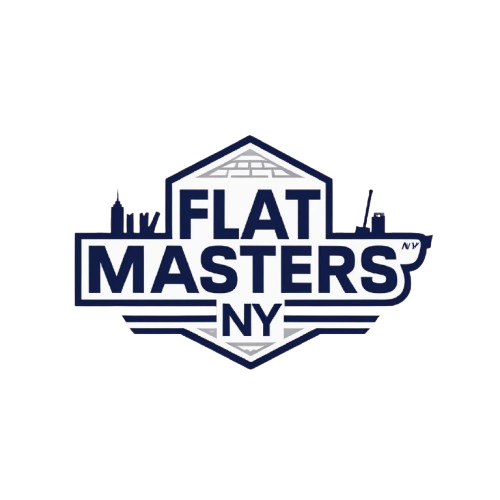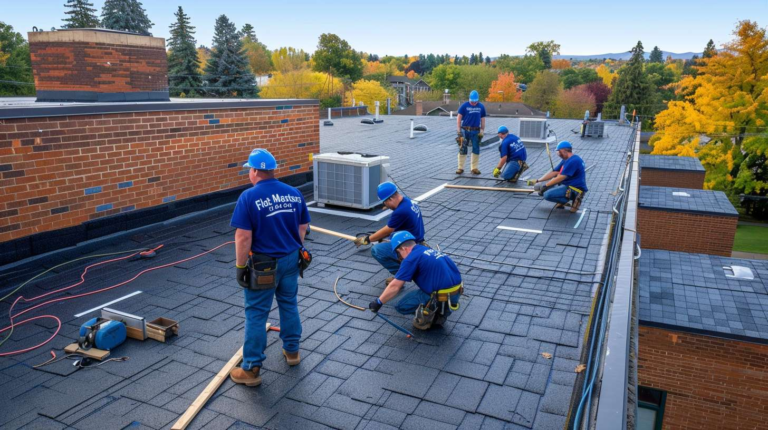Professional Flat Roof Domes Installation and Repair Services
Flat roof domes can completely transform your commercial or residential building in Queens, bringing natural light into spaces that were previously dark and cramped. After installing over 300 dome-style skylights for flat roofs across Astoria, Long Island City, and Flushing over the past 15 years, I can tell you these aren't just about aesthetics - they're about fundamentally changing how your building performs.
Look, I've been in this business long enough to see every trend come and go, but flat roof dome windows have staying power because they solve real problems. When you're dealing with a flat roof in Queens, you're already fighting against pooling water, limited drainage options, and the constant battle against leaks. Adding dome lighting might seem like you're just creating more potential problems, but when done right, it's actually the opposite.
Why Flat Roof Domes Make Sense in Queens
The thing about Queens is we get hit with everything - heavy snow loads in winter, intense summer heat that can reach 95°F on the roof surface, and those brutal nor'easters that test every penetration point. A properly installed flat roof dome needs to handle all of this while still providing consistent natural light year-round.
Here's what I tell every customer: flat roof dome installation isn't about cutting a hole and dropping in a skylight. It's about understanding how water moves across your roof, where the structural support is strongest, and how to integrate the dome with your existing drainage system. Last month we installed three large domed flat roof windows on a warehouse in Maspeth, and the owner was amazed at how much his electricity bills dropped just from the natural light during daytime hours.
The key is proper curbing and flashing integration. I can't tell you how many times we've been called to fix dome installations done by contractors who didn't understand flat roof dynamics. They treat it like installing a regular skylight on a pitched roof, which is completely wrong.
Dome Styles and Materials for Flat Roofs
When we talk about flat roof dome light options, you've got several directions to go. Single-dome units work great for smaller spaces - maybe a bathroom or hallway where you just need basic natural light. Double-dome systems give you better insulation properties, which matters here in Queens where we see temperature swings from 10°F in January to 85°F in July.
Acrylic domes handle our weather conditions well, but I typically recommend polycarbonate for commercial applications because of the impact resistance. We had one building in Jackson Heights where a tree branch came down during that big storm in 2019 - the polycarbonate dome took the hit and stayed intact while the neighbor's cheaper acrylic unit cracked.
Size matters too. A 2x2 foot dome works for residential spaces, but if you're lighting a commercial area, you might need 4x4 or even larger custom units. The bigger you go, the more critical the structural support becomes.
Installation Process and Timing
Every flat roof domes installation starts with a thorough roof inspection. I need to know what's under that membrane - is it a concrete deck, wood decking, or steel decking? What's the insulation situation? Where are the existing drains and how will the new dome affect water flow?
The actual installation typically takes 4-6 hours for a standard residential dome, longer for commercial units. We always check the weather forecast because you can't install these in wet conditions - obvious reasons there. The membrane cutting and curb installation needs to happen when everything is completely dry.
Temperature matters too. Membrane materials behave differently in extreme temperatures, so we typically avoid installations when it's below 40°F or above 85°F. Spring and fall are ideal, but we've done emergency replacements in every season when necessary.
Common Problems and How We Address Them
The number one issue we see with existing dome installations is water infiltration around the perimeter flashing. This usually happens because the original installer didn't properly integrate the curb with the roof's drainage system. Water pools around the dome base instead of flowing toward the drains.
Condensation is another big one, especially in spaces with high humidity. Poor ventilation around the dome creates moisture buildup that can damage both the dome and the surrounding roof structure. We always evaluate the ventilation system before recommending dome placement.
And then there's the structural issue - I've seen domes installed over areas that couldn't properly support the additional load, especially when you factor in snow accumulation. A 4x4 foot dome might seem light, but add two feet of wet snow and you're talking about significant weight concentration.
Energy Efficiency and Cost Considerations
Here's something most people don't realize about flat roof dome windows - they can significantly impact your building's energy efficiency, both positively and negatively. A well-placed dome reduces lighting costs during daylight hours, which is great. But if it's poorly insulated or creates heat gain issues in summer, you'll pay more for cooling.
We typically recommend double-dome systems with thermal breaks for this reason. Yes, they cost more upfront - usually $200-400 more than single-dome units - but the energy savings over time make up the difference, especially in commercial applications where lights run 10-12 hours daily.
The ROI calculation depends on several factors: electricity rates (which keep climbing in Queens), the amount of natural light gained, and heating/cooling impacts. Most commercial clients see payback within 3-5 years on quality dome installations.
Maintenance and Longevity
Quality flat roof dome light systems should last 15-20 years with proper maintenance. The key word there is "proper." Most people install them and forget about them until there's a problem.
I recommend annual inspections, especially after severe weather. Check the flashing seals, clean debris from around the curb, and inspect the dome material for cracks or discoloration. Small issues caught early are usually minor repairs - wait too long and you're looking at full replacement.
Cleaning matters too. A dirty dome blocks light just like a dirty window. For safety reasons, we handle all dome cleaning for our commercial clients. Residential customers can usually handle basic cleaning from inside, but anything requiring roof access should be left to professionals.
Oh, and another thing about maintenance - keep trees trimmed back from dome areas. I've seen too many domes damaged by falling branches that could have been prevented with basic tree maintenance.
Why Choose Flat Masters NY
After two decades of flat roof work in Queens, we've learned that every building presents unique challenges. That warehouse job I mentioned in Maspeth? The original plan was for four domes, but after our site evaluation, we recommended three larger units positioned to work with the existing HVAC layout. The result was better light distribution and lower installation costs.
We carry full licensing and insurance for all dome installations, and we warranty our work for five years - that's on top of the manufacturer warranty on the dome materials themselves. Our team has installed domes on everything from single-family homes in Bayside to major commercial facilities in Long Island City.
When you call Flat Masters NY for flat roof dome consultation, you're getting someone who's actually been on thousands of Queens roofs, who understands local building codes, and who knows how to integrate new installations with existing roof systems without creating problems down the road.
Every dome project includes a detailed assessment of your roof's current condition, structural capacity, and drainage patterns. We don't just install domes - we make sure they'll perform properly for decades to come.


